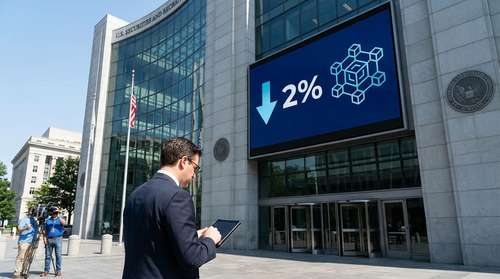South Korea has lately taken the lead in regulating cryptocurrencies to strike a balance between encouraging innovation and protecting investors. A 20% tax on profits from cryptocurrencies was supposed to go into effect in 2022, but that has been continuously postponed. Given the continuing difficulties and changing viewpoints within the country's regulatory structure, talks have begun as of July 2024 to perhaps further delay this tax.
Background of the Crypto Tax Proposal
The South Korean government had planned to impose a 20% tax on cryptocurrency earnings by January 2022; however, the announcement was made in January 2021. Any gain over 2.5 million won ($1,900) in a year was subject to this tax.
Nevertheless, the implementation was initially delayed until January 2023 and subsequently extended to 2025 as a result of market volatility and worries regarding appropriate regulatory frameworks. Legislators like Kim Young-jin, who pushed for strong regulatory procedures prior to implementing such levies, were the primary voices calling for the postponement.
Reasons for Considering Suspension
South Korea's governing People's Power Party has been pushing to suspend the crypto tax implementation. The following are the reasons why the crypto tax might be temporarily suspended:
Market Condition
The South Korean government recognizes the importance of a stable market before placing further financial obligations on investors, as the Bitcoin market has been very volatile. Given the relative riskiness of cryptocurrencies compared to more conventional investments, some are concerned that their rapid taxation may discourage investors. A stronger mechanism to manage cryptocurrency taxes is necessary, and the new plan spearheaded by Rep. Song Eon-seok emphasizes persistent infrastructure issues.
Regulatory Framework
The newly elected president, Yoon Suk-yeol, has said that a thorough regulatory framework is important. The Digital Asset Basic Act (DABA), which is proposed to be adopted early in 2025, seeks to encompass all digital asset operations, including initial coin offerings (ICOs), non-fungible tokens (NFTs), and more. For the sake of investor safety and long-term market viability, this regulation-first strategy is considered as essential.
Comparative International Approaches
Other countries' experiences with crypto taxation have influenced South Korea's stance. For instance, India's heavy 30% crypto tax led to a significant drop in trading volumes, highlighting the potential downsides of stringent tax policies without supportive regulation.
Implications for the Crypto Market
Investors and the market as a whole stand to lose a lot if the 20% tax on cryptocurrency gains is actually suspended. One positive aspect is that it has the potential to stimulate investment and new ideas in South Korea's cryptocurrency business.
Conversely, it makes one wonder whether the government can keep up with the changes in this dynamic industry when it comes to taxation and regulation. Delays, according to critics, reduce regulatory clarity and may even cause market volatility to rise.
Not to mention that the government would end up shortchanging its funding for essential services and infrastructure if taxes weren't imposed immediately.
Wrapping Up
The ongoing discussion over South Korea's 20% tax on Bitcoin gains shows the complexity of regulating a dynamic and rapidly expanding market. Legitimate worries about infrastructure and market impact have led to the proposed suspension. However, this suspension also shows the problems of reconciling innovation with regulation. What comes out of these discussions as South Korea deals with these problems will certainly affect the cryptocurrency market worldwide.




